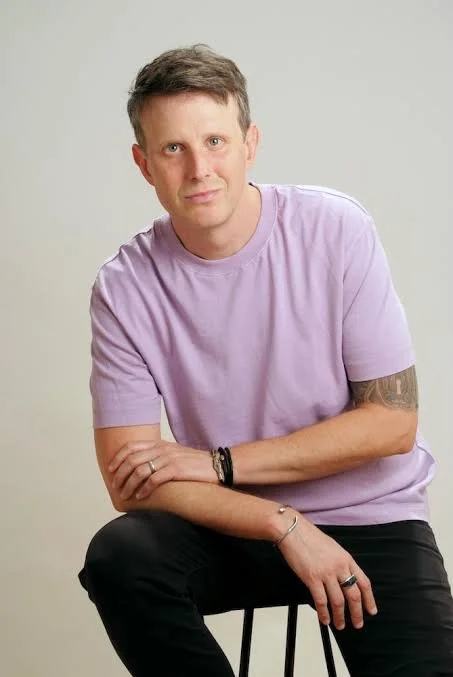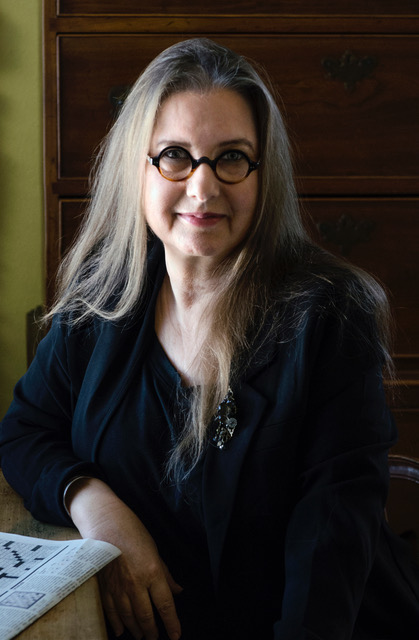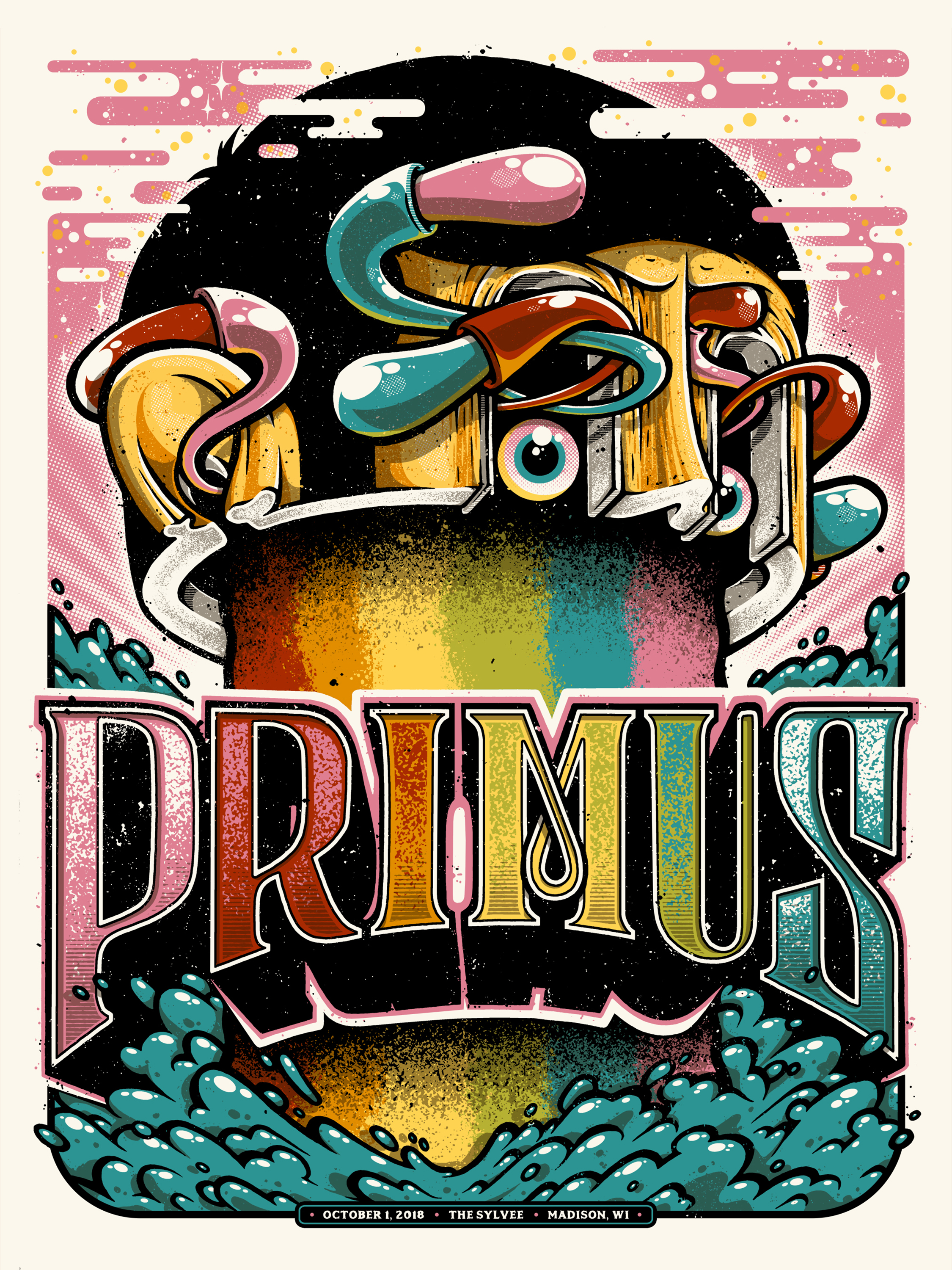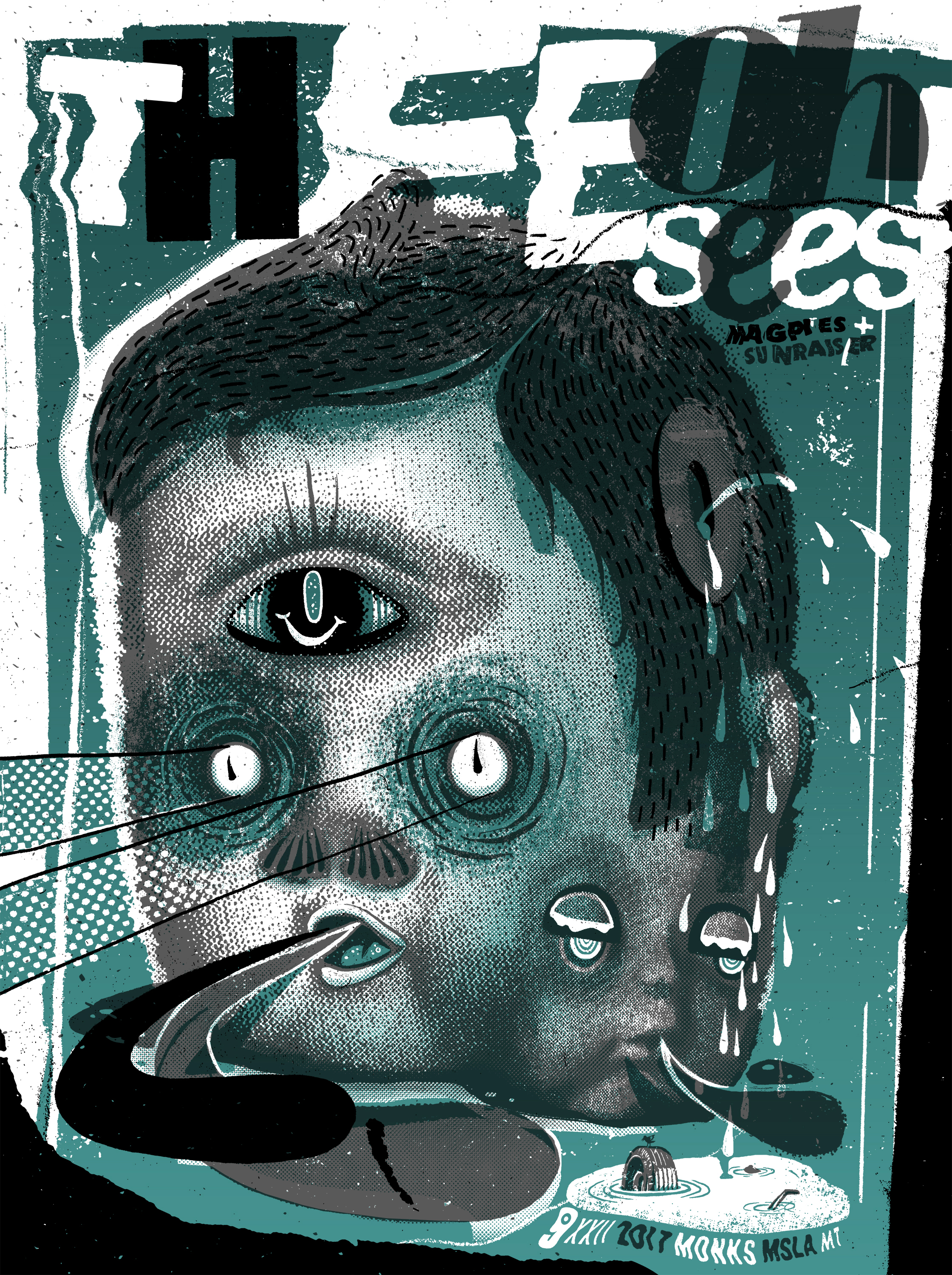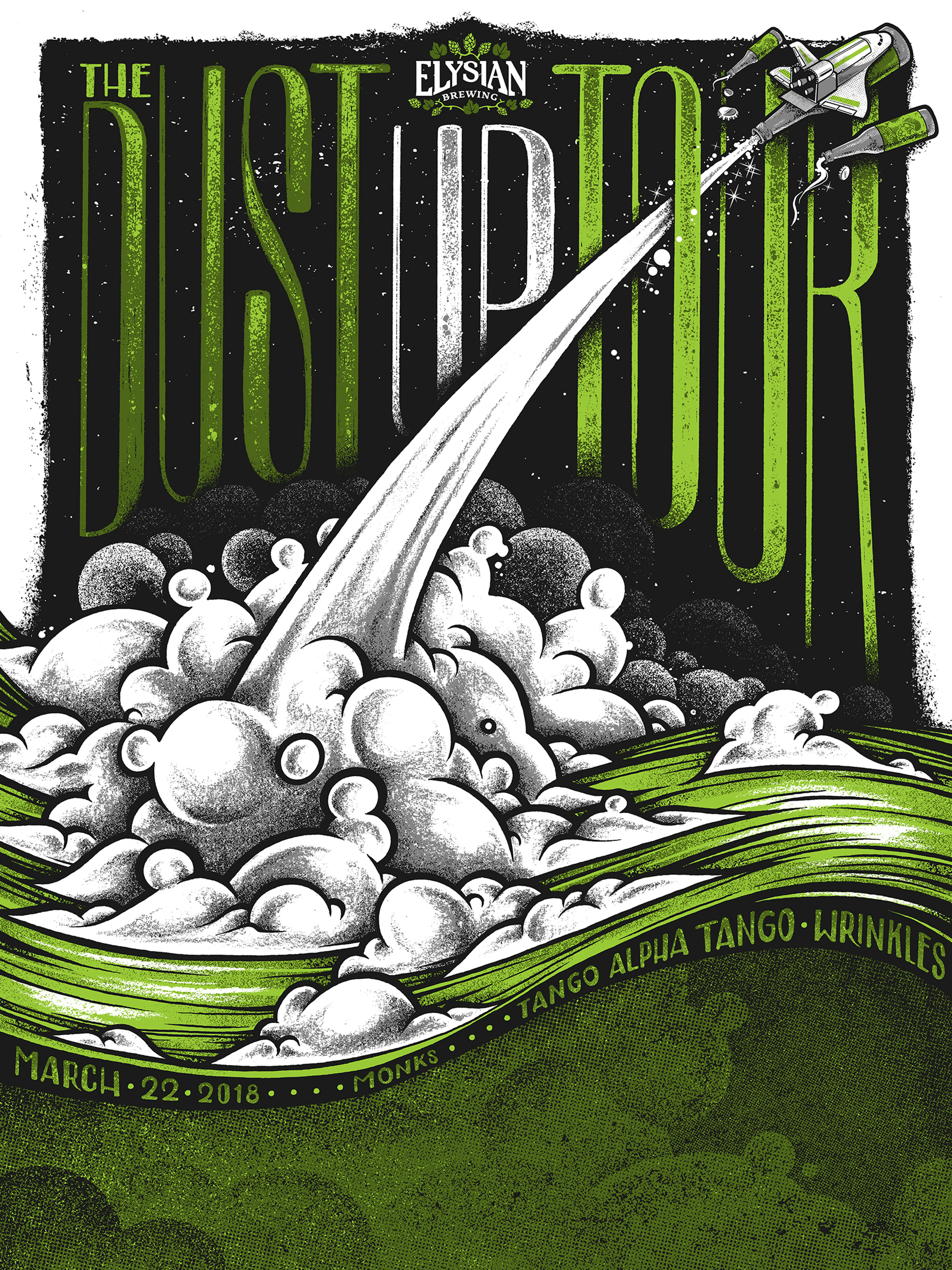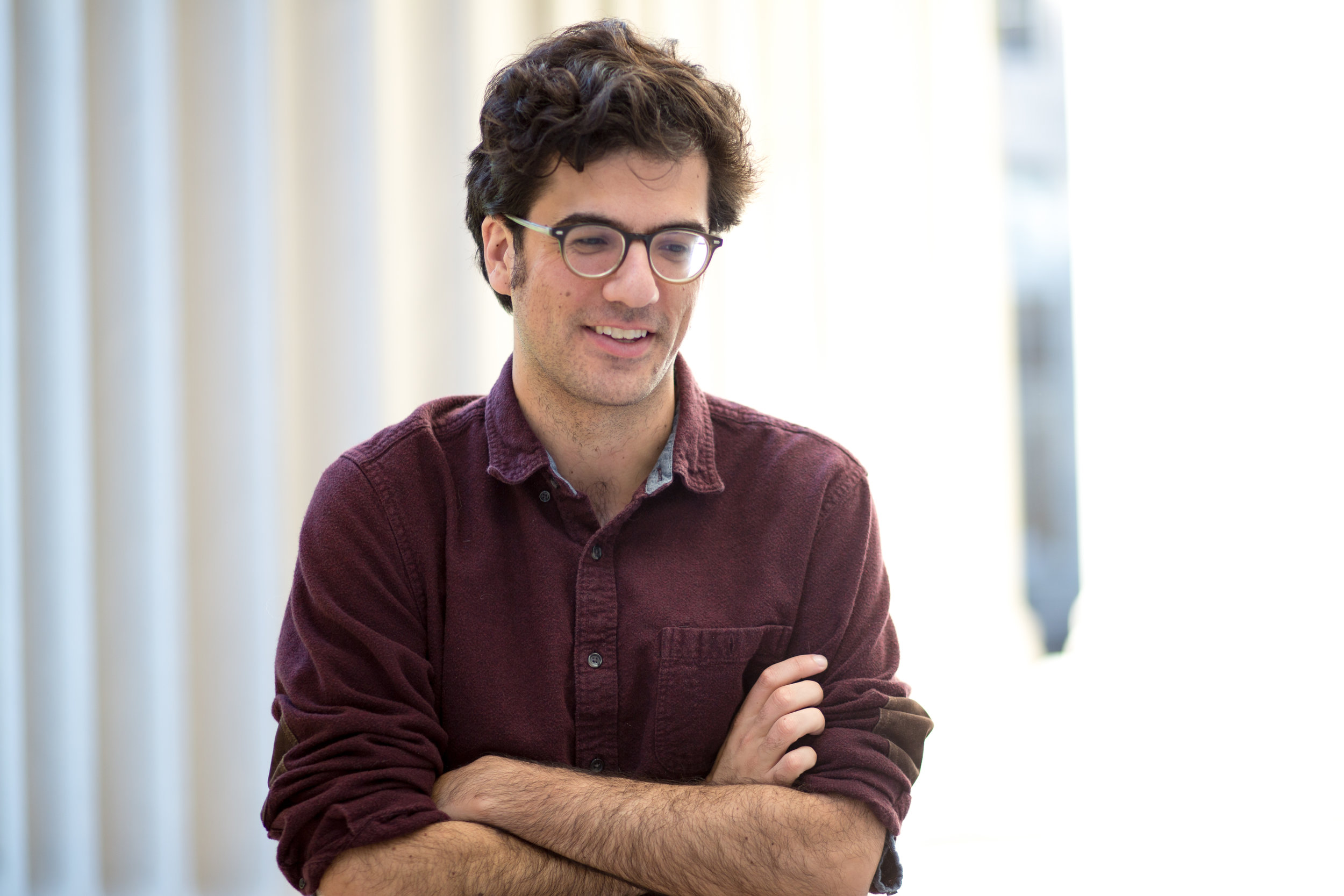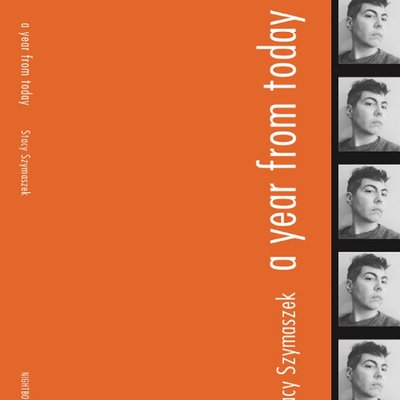Anna: What shape did your process writing Winter take?
Sarah: I started writing Winter about twelve years ago. My first son, Oskar, had been born a year before I started the book. Like all new parents I was very, very interrupted. I was to be interrupted every few seconds, for years on end, as it turns out. And this interruption was in great contrast to the hours-a-day writing practice that I’d maintained during the years before he was born. So the book began with a writing exercise I gave myself—to “make myself” start writing again after having a baby. I thought to myself: a year has passed, Sarah, so get your shit together and start writing.
And so I gave myself an assignment to wake early the next morning and write a poem about winter.
It was snowing at the time, we were on the Olympic Peninsula, it was beautiful, I love winter. It seemed like the easiest thing I could ask myself to write. I did wake early, before Oskar woke. I sat down to write about winter, and I couldn’t. I tried again the next morning. I couldn’t. I had two more babies, moved a few times (Phoenix, Olympic Peninsula, Los Angeles, Ivory Coast), years passed, and I kept waking up early in the morning to write a poem about winter. All the (thousands of) failed poems and the veerings away from the poem accumulated. I got self-conscious about it at some point and began to track the process of trying to write—and it became something of a writerly memoir. Then I began writing about all the things that were stopping me from writing the poem about winter…climate change, babies, porousness, glut, the invisible wars our country was waging, pinging from industrial and military sonar, lack of health insurance…I don’t know what order all these things all happened in. Maybe roughly that order.
Anna: When, in the process of accumulating winter poems, did the book start to come about?
Sarah: I smashed my head against those thousands of pages of scraps and drafts for a few years, trying to I find a form for the “book” of it. I ended up making several books, but this version is the one that we’re publishing. I did feel like, during those years, I made a book, then re-made the book, then re-made the book—and each time it was a completely different book. It was almost impossible for me to stop making this book.
Anna: This book is very conscious of itself as a book, as a constructed thing. Which also means that, as an ongoing project, it had to change with time. How is the book thinking about absorbing time and change?
Sarah: If I had just not published any of my previous books, and marked them in that way as a “finished” book, I wonder if the same thing would have happened with them. I wonder if I would have kept re-writing them forever until they became the next book and the next book.
But this one. I suppose I especially couldn’t stop writing this book because it was so connected to the babyhoods and young childhoods of my children. I couldn’t stop writing this book because if I did stop, then that would have meant that their tiniest years of childhood were somehow over. And that is what happened. I stopped writing it a few months ago. We published the version it was at that point. And now we—my children and partner and I—are in a different part of our lives. The kids aren’t our little ones anymore. They’re bigger kids. Something is forever different.
This book was self-conscious because I was self-conscious. I felt the whole project to be very self-conscious. As soon as I started imagining the morning winter poem exercises as something I might show someone else, it became contrived, I could say. I initially asked myself to sit down and write a poem about winter—in order to start writing again. I couldn’t write the poem. As soon as I couldn’t, I was interested. One of my favorite things about myself is my perversity. As soon as I’m told I shouldn’t do something, that’s all I want to do. As soon as the winter poem told me to go fuck myself, I was like: I’m back. For twelve years.
Anna: Winter is about you, the poet, throwing the winter poem at a wall over and over again, but there’s another formal through-line: it has violence written into in the margins. “Drones are probably killing someone right now” appears in the top and bottom margins of every page. When you read aloud from this work, you read that margin violence out loud. At what point did the drones become part of this winter project, and how are you thinking about attention to violence?
Sarah: The drones came in early. I don’t remember exactly. And that margin note was not originally for the reader… I wasn’t, not at first, thinking that these pieces would ever have a reader. This whole effort was originally for myself, or maybe for my kids. So the drones at the top and the bottom of the page were a reminder for me. About the outer world, when we felt so inner.
I began this project on the Olympic Peninsula, in our tiny cabin—it’s so beautiful there. It’s impossible to describe how beautiful. It’s far away from anything like a city. In many ways we looked, as I said in the book, like monsters of heteronormativity. We could easily have appeared to be a reclusive, remote, detached “family.” But that wasn’t what we felt like. And that wasn’t what was actually happening. Todd was writing and translating. I was writing. We were both teaching. We were struggling with all the human things. We were enjoying all the human things. Our kids were and are intense and unusual and mind-blowingly awesome people. Nothing inside of that building felt the way that I knew that it could appear, from the outside. I started to think about that tension, and also its actuality.
We were far away from a city, but we were very close to whales. We were close to the mountains. I started trying to remind myself of what was happening in the rest of the world. I made certain commitments to hold at the front of my mind what was happening far away from me, but which was the same thing as me.
I needed to remember the invisible war that our country is always waging. It’s invisible to me, to us, that is—it’s not invisible to the countries we’re waging it against. I needed to remember that we’re almost always at war, as a nation state. I needed to remember that we are bombing someone right now.
I also needed to remember that the whales and other sea creatures swimming around our peninsula were having their brains exploded by military and industrial sonar. I couldn’t write the poem “Winter” thousands of times, because I kept remembering that winter as I had known it was disappearing from earth because of climate change. I was trying too hard to remember everything, to remind myself. Or, as I say in the book, to re-mind myself.
Anna: Once I got used to the book’s form, I found it was possible to read past the margin and stop noticing it on every page.
Sarah: The most terrifying thing to me about the phrase is that—even having made the years-long commitment to remember, even with the phrase “Drones are probably killing someone right now” on the top and bottom of every page—I forget to read it. I regularly breeze past it. After a while the reminders become invisible to me, too. That’s not an indictment, because we can’t keep all the vast and distant violences in mind all the time. That’s the point. That’s why they’re doing it the way they’re doing it, conducting the wars invisibly, so that we aren’t able, even if we try, to remember.
That’s the way they conduct capitalism. And nations.
I think you once called that marginal reminder a “textual nagging,” Anna. I love that. Even if it’s bugging the shit out of me to read the phrase “Drones are probably killing someone right now” again, because I’ve said it so many times, I’m going to fucking say it again. And even if the phrase is ruining my poem, fuck my poem. Even if it’s ruining my book, fuck my book. I’m going to say it again.
Across more than 200 pages, at the top and bottom of every page…it turns out that’s a lot of repetitions of that phrase. There’s no audiobook, but that’d be hilarious.
Anna: There’s a moment in your book, about halfway through: “When I have too much information, I resort to pattern recognition.” I think pattern-making is connected to this thinking about what’s in the margins and what repeats in that way, but also the way a lyric poem resolves itself. As poets, we know intuitively how to write a lyric poem, what works. You’re exploding the lyric poem in this book.
At the same time, the book does fall into patterns, but then the patterns get subverted or exploded, too. How are you thinking about patterns in the context of the daily meditation, or the lyric poem, or the manuscript as a whole?
Sarah: I do love patterns. I’m thinking of patterns in terms of the lyric poem, and I’m thinking of patterns in terms of stages of a human life or of seasons and ecosystems, and I’m thinking of patterns in terms of repeated habits. Or, as I began to think of it in this book, pattern as commitment and devotion. If you’re devoted to something, you are present for it again and again and again. If you’re committed to something, you are present for it again and again and again. There’s pattern inherent to devotion and commitment—both of which created the underlying form of the book. There is a mundanity and a dailiness, too, to both of those ideas.
There’s also a pattern to our human violence. And patterns to our greed on large and small scales. Patterns to capitalism and colonialism and neocolonialism.
So, I suppose we don’t get out of patterns. I used to have that line about resorting to pattern recognition a lot of places in the manuscript—I’ll bet forty or fifty times. Most of those moments were taken out across time and parings. That phrase was another self-reminder that I used at the moments I thought my thinking was failing. What am I doing here, in this thought, that is just me resorting to the ways I have already thought about this? Patterns are a beauty and a failure in my thinking. They are algorithmic. At points I think this book reads, or used to read, more like programming—or artificial intelligence. I am always interested in what of my own thinking is out of my control. I rely on patterns because I have a human brain, but to what degree do I have to agree to that? What degree of pattern can I not abide? Can I change my thinking? I am probably always asking my brain to do things that my genome isn’t necessarily interested in.
Anna: Sometimes the book leaps out of its own chronology, and the book is also thinking about its own arrangement—so that the reader knows not to expect an arc of redemption, because you will not impose such a resolution. But you also acknowledge the book might need to be aware of making the reader feel something.
Thinking about the lyric poem—we know what a lyric poem should do. We know how it freezes a moment of time and expands it, and we might know how a reader will experience that. In Winter, there’s so much grappling with how and to what degree you want to buy into that, this artifice of the poem, or the relationship between the manuscript’s form and its sentimentality. How do you experience this tension now that the book is being published?
Sarah: Maybe you’re asking about what happened to the entire project when I began to think of audience versus these writings as a personal practice? At some point the sense of audience did come into the project, but I never could imagine who or what that might be. Audience was nearly impossible for me to imagine as I was writing and shaping Winter. Was the audience other poets? Other people thinking about souls? Just my kids?
You’ve heard me read from the book at least three times, and probably many of those pieces didn’t make it to the final book. And probably I loved those pieces. People have been reading and weighing in on the book for me, peers and mentors, over the years—but they all read and proofed different books. My first question to you today, when we were at Bernice’s, was: What was it like for you to read it?! Because I don’t know! It’s still, for me, so many of the different books that it has been across time. I can’t quite remember, yet, what it has settled into. I don’t have any idea what it must feel like to read these writings.
I was texting with Danielle Pafunda yesterday, and I said I think I’m just going to keep writing Winter. I’m going to take a page from Walt Whitman’s playbook and keep writing and publishing Winter for the rest of my life. In this book I slam my head against a set of ideas for years, or I apply the dimension of time to a set of ideas. I commit and I still feel committed to it—so why not just keep going until I’m dead.
I guess what I’m saying is that I never really know what to do with the idea of an audience, or with making books or poems that do what they’re supposed to be doing, according to poetry-world logic. I feel much more desperate, as a writer, than that. More desperate and desirous and irreverent and interestingly (to me) fearful, than strategic. Though I do obsess, as if someone will read it, over every single detail of a piece of writing, and for as long as I’m able.
Anna: How did that imagining of an audience affect the way this book was eventually curated and formed? This book resists the impulse to draw and present artificial meaning from experience. At the same time, even though the chronology is disrupted and the narrative arc undermined, the book does present certain information in a certain order—information about your father, subsequent pregnancies and births—which builds context. But that’s also a fact of reading a book—information given early will affect what comes after.
Sarah: This book began with a desperation and scattered words on thousands of pages. The desperation was also beautiful to me. It was the thick of life: children, money concerns, health concerns, soul concerns, how to be a decent person in the world. It began as a personal project. I didn’t know that I would eventually show it to people. Very often I would be writing at four in the morning when a child would come down the stairs and climb in my lap and interrupt me during the first thirty seconds of alone time I’d had in days. Instead of being devastated that my time (mind) was again interrupted, I began trying to include whatever thing they said or did in that moment. We began to co-write the fragments, the child and I. Then the children and I. I cherished their presence as much as I was demolished by a lack of self-space or self-ness. I began with these small-immense personal moments that were almost-chronicling, almost-journaling. Later on (years later?), I shuffled and arranged them and thought of them as a more public thing. I don’t think they’ve ever been lifted out of their dailiness, however. And I don’t know if they’ve ever been lifted out of their privacy. Even though the writings eventually become self-conscious and eventually begin to wonder how people will see them, they began in a deep personal underwater…with a reaching.
Anna: That makes me think of the word “tangled”—it appears so frequently. The family-animal is tangled—but there’s some untangling as the kids start growing up. The children start moving through the world without being super close to you. They stop breastfeeding. They become individuals. And your mind does some readjusting.
Sarah: Right. I’m not sure if this is the case, but I think that the final piece of writing in the book, the epilogue, that might be the only piece in the book where the kids aren’t on the page or interrupting it. It is untangling.
Anna: Yes, you’re alone at your desk. It’s snowing and you have your coffee, the fire burning in the fireplace. The tonal coziness of winter is so much the book’s backdrop as it looks at winter as a classic poetic subject, interrogating it and bringing interruptions up against it. Of course, the book spans years and some of those years are in Los Angeles, but the tone of the book—it’s always a certain season.
Sarah: Coziness. The book builds itself out of coziness, and it demolishes coziness. I was raised in that scene. I grew up in Montana, as you know, and I grew up with a charming wood-burning stove that burned throughout winter to keep our house warm. I grew up with snow and four seasons and the Christmas tree—the Christmas tree shows up a lot in the book, too. The comfort and beauty of this scene is inside of me, it made me, it is an ideal that I deeply love: snow, a fire, forest, loved ones. It is cliché, and it is real. But I’m also trying to demolish the supposed simplicity of the domestic, and of coziness, throughout the book. This cozy scene is only made possible by millions of accumulated violent actions on the part of this country, of which I am part. Or, thinking even further back through human prehistory—the hearth, the fire, has been present for one species of human or another for more than a million years…prior to the appearance of homo sapiens. And with the appearance of homo sapiens on earth, and their spread across earth…there was an immediate destruction of animals and whole ecosystems as soon as our species arrived somewhere. So this fire, the relationship between fires and storytelling, and the violence that makes the hearth possible—they are all so deeply (genome-ly) part of me. Then why have they become, also, so deeply at odds with some part of me?
So yes, I continually evoke this cozy winter scene and this adorable cabin with a family in it, yet at the top and the bottom of the page the drones are probably killing someone right now. I am trying to hold all the ideas of where I am together, and all the time. I am trying to break and to cultivate ideas of safety and comfort. I am trying to share with my children something of what I loved in my childhood. I am trying to perform the ancient human activity of looking at a fire and telling a story. I am trying to focus. (Did you know the word focus comes from the Latin for a domestic hearth?) I am trying to focus or to learn to re-focus. I am trying to be comfortable and to be surrounded by beauty. I am trying to ruin comfortable and to show how anthropocentric my ideas of beauty are. I am trying to acknowledge the violence of…any cozy scene on earth. A violence that felt, for so long, like peace. To me.
Anna: Holding the infinite opposite truths inside of you?
Sarah: Yes. I am always aware that I might love things that are horrible. I love things that are horrible throughout the book. Having children in this day and age—that’s possibly horrible. Loving something doesn’t mean it’s not also somehow horrible. And something being horrible doesn’t mean that it’s not wrapped up in love. I don’t know what to make of that, but I do think that most of what I was trying to do all those years is just to see clearly, or to hear something clearly.
Everything in our world right now is arranged in such a way so that we don’t see it clearly, so that we don’t remember the war, so that we don’t understand how the economics of our country are actually functioning domestically or globally, so that we do believe in the fiction of money. Money’s not real, but we all somehow swallowed this story that it exists, and we’re basing most of our behaviors on its realness. In the book I’m trying to remember what the world is trying to get me to forget. I’m trying to destroy my training. I’m trying to love every second of the desperate thick of my life. And I’m trying to figure out what just happened to my entire selfhood, and what are all these things flowing through my heart-brains-mind-body. Is that cozy? Is that a tone?
Anna: I think you’re alluding also to Stevens and poetic training and lyric poetry—and that that love/hate tension has to exist. One of the pieces early in the book includes the phrase “mind of winter,” and I think that’s the first allusion to Stevens—but he hasn’t been mentioned by name yet, not until a few pages later, and then it’s in the context of calling out the disembodied male listener. I was thinking about the way Stevens and his mind of winter hover over your concerns about the winter poem. Stevens isn’t right, but he also is right. I had to laugh a little when, in one of the pieces, Todd comes into the room and says, “It’s your book about holding infinite opposite truths inside of oneself in order to stay on earth.” So, what do we keep, and what do we interrogate? How can infinite opposite truths live in the poem?
Sarah: I am sure I said it all the time in our class last year, but I’m interested in smashing things together. In teaching I often refer to what I call “the holy inner fuck you”—all writers have to have one. I think it’s one of the most ethical and loving things a human can have. In writing, one of the most important things we can do is tell something that wants to be close to us to fuck off. Sometimes that’s our own training.
I’m very susceptible to lyric poems. I’ve written so many poems, I’ve written for so many years, that there is a formula to my lyric instinct at some point—a writer’s own personal formula. In my MFA days I remember people referring to that—when a writer writes their own type of poem for a long time—as a writer being a caricature of themselves. Just doing what you’ve already done again and again, in a slightly different way. I can be a writer of my own writing all day long, but at some point I’m just producing. I’m not thinking anymore, and I’m not learning anymore, and I’m not breaking anything anymore, and I’m not seeing clearly anymore. I’m in pattern recognition, even if it’s my own patterns. But my own patterns are all informed by all this training from the worlds that I’ve lived in, and the only way I can get outside of that is by breaking something of myself, or of my thoughts, or of language—so then I might be thinking again. Not just repeating my patterns.
If the world in late capitalism is, as I believe it to be, always trying to trick us into not thinking, then I’m always trying to not be tricked. To see clearly, I have to break the patterns that I might have internalized, but they are infinite and messy. And this glut of infinite opposite truths is the human condition right now. It’s a shitty trick.
Anna: In Winter, you write that for so long your relationship with writing has been all about figuring out how to be a person. But your mind is so fragmented and clouded by the physical experience of being a mother—your body is turned inside out and your immune system is changing.
Sarah: I am glad you brought that up. That’s what I thought for a little while after my first child was born—that I can’t do this writing thing well anymore because I am doing this other thing—mothering. That my mind—fragmented or clouded by breastfeeding and hormones and pregnancy and caretaking and sleeplessness—was a lesser mind. But I quickly realized it was actually a spectacular mind. I perceived so much more and sensed the living-ness of so much more than I previously had—I hadn’t been this openly perceptive and attuned and aware of the feelings and sensations and presence of the world around me since my own childhood. So instead of thinking of these writings as coming from a postpartum brain-fog, I started thinking of them as coming from my postpartum state of genius. And most of literary and artistic and philosophic history has excluded the writers and artists working in a postpartum state of genius. And literary and artistic and philosophic history is wrong for not having sought out people in their postpartum states of genius and begged them: tell us. Tell us what you have figured out from your super-embodied super-state. Tell us what you see from there. Instead, they’ve dismissed that entire human experience out of hand, or waited for it to be over. There are, for example, no wisdom books in the Bible written by women who just had a baby. So, fuck the Bible. The western literary canon is filled with undisturbed men who have closed doors and plenty of time. And that’s part of why I’m unendingly annoyed with Stevens’s snowman—the speaker gets to be a disembodied, floaty mind of winter—Stevens probably dictated that poem to a secretary. He probably didn’t even have to be embodied enough to write it down.
Anna: I can’t help but think of the postpartum state of genius in winter as having an inherent attachment to a certain landscape, and then eventually you have to leave that landscape and inhabit a new landscape, a new field of selfhood. Throughout the book, with the repetition of I, you’re throwing your subjectivity at this thinking over and over again—from within the family animal, tangled and untangling and shifting and changing. Where is the poem’s subjectivity now—and is a poem a thing you’re creating or is it a thing you’re living inside and recording?
Sarah: Maybe I need another year until I can answer that question. What do you think is happening?
Anna: It feels like it’s another mantra or a reminder that the I persists, that the I doesn’t get interrupted all the way out. It’s there. It’s on the page.
Sarah: Thank you. That’s nice. I’m sure I’m trying to simultaneously break and to sustain the I all the time. Or alternately.
Anna: Maybe relatedly—the word crucial. Early in the book, you refer to “the crucial thing.” And are interrupted. Then later, Todd needs to write his crucial thing, and later the crucial thing is telling the kids how to protect themselves. How do you think about crucial now?
Sarah: I was making fun of myself a little bit—it felt so crucial to have the time to write my poem, but the kids were like shut the fuck up and give me a pancake. I’m also grieving and longing for the exact thing that I’m mocking. I’m sure the humor is a self-protective gesture. But this is also a book coming from my Catholic imagination. So of course crucial is also saturated with the cross—not because I’m devout, I’m not, but because it’s an image that has echoed throughout my life. What do you stake it all on. What is the crucial thing…I am always asking.
Anna: Let’s talk about aphorisms. Two years ago, you called this book Winter: Aphorisms. When you sent me the book this summer, I was surprised to see that aphorisms was absent from the title. Instead: Effulgences & Devotions. I read that as devotion to the family animal, and I hear you being devoted to the practice of the poem as well.
Sarah: Devoted to remembering that the brains of whales are being exploded. That climate change is going to hasten mass extinction. That climate change is going to stop winter, as I have known it. The top and bottom of each page are devoted to grieving, disgust, and rage toward our nation state’s violence. I spend some time devoted to trying to figure out why Stevens’s snowman pisses me off. I was devoted to many different things as I was trying to write this, including the family-animal. I was also devoted to myself—believing that I should have the time and space to sit down again and again in order to think harder. And that maybe I had a soul.
I wonder if I used “aphorisms” to move my daily writings, which I initially thought of as for myself, to a more public context. As in: here you go. This is the best I can offer. This is the wisdom I can offer you from this brain, at this time, in this place. Anna Journey first put a section from these pieces into a journal she was guest editing, and we called them “Winter: Aphorisms,” and from that point on, for a period of years, that was how I referred to these writings.
Anna: What about effulgences? I had to google the definition, and the internet definition is its own poem. It says, “You may be dazzled by it, stunned by it, or even overcome by it.”
Sarah: Say that again.
Anna: “You may be dazzled by it, stunned by it, overcome by it.”
Sarah: I usually thought of these pieces as journaling or daily writings. I resisted the word poem associated with them. I needed a different lineage to form the context for the pieces, though poetry is part of the context. Also, devotions, commitments…those can sound dreary or like drudge. There was dreary and drudge involved in the whole endeavor (kids, the years, the book(s)), but I was also in ecstasy. I was fucking mind-alteringly happy—but too much. Everything was too much. I was so happy. I was too frustrated. I was so glutted. I was so tender. I was so porous. I was so in love and I was so loved. The moments were usually exquisite and disgusting, and always too much. There was always a too-muchness to it all. But it wasn’t just work or heaviness or seriousness. It was delightful and exquisite and gorgeous and fragile and weird and hilarious and terrifying and perverse. I needed a word for that. Effulgences—my assaulted and dazzled senses, at every moment of every day. It was dazzling. Alongside the rest.
Anna: Against or alongside that dazzling, the business of being a poet—that’s bound up in this book too. Health insurance is a concern, and applying to a PhD program to get some stability. How are you thinking about stability and careers in this world now?
Sarah: How am I thinking about this world? The poetry business? I’m always confused by it. We should all always be confused by it. I think we devise different ways of pretending it isn’t there, or pretending that we’re less affected by it than we are, or pretending that it’s all legit. The students who are going into debt, who still believe there are jobs for them at the end of their years of school—how can we move through poetry world without talking about that? And the problem of health insurance and the problem of adjunct versus tenure track. We aren’t adequately talking about or facing those problems, as a community. Adjuncting is sort of a criminal university project, right? It’s not unusual that people in the poetry world who have platforms and who have safety or security forget the circumstances in which the poems—of those who don’t have that security—are made. Many even believe that the division between tenured and adjunct is the right one. My book is very concerned with the circumstances in which a poem is written, and so I have to mention the roles that adjuncting and health insurance played when I began writing it. I think we should all talk about the economies of poetry, teaching, and publishing even more. Another trick of capitalism is that it discourages people from talking about money. For better or worse, purposefully and not-purposefully, I have never been tenured nor tenure-track, but I have taught in various ways at the graduate and undergraduate level for 19 years. I often say I’ve dodged a bullet. But I’ve also dodged the glory and the ego boost and the security and the platform of it.
Anna: When we spoke earlier this summer about your book being released, you mentioned being excited that this is your first book you’re going to be involved with promoting. This features in the book itself too, that when your other books came out while you were pregnant and raising little kids, you didn’t tour with them.
Sarah: I did basically nothing for all of my books. I only said yes to a reading if I was invited by somebody I knew, and I would usually bring a kid. The person who invited me usually had a kid and they would help take care of my kid while I read or did a class visit. There were a couple things I did that were different than that—some panels and readings. But for the most part, I couldn’t promote my books, and I didn’t go out of my way to try to create circumstances that would allow me to, either. I don’t think of that was awesome or not-awesome. It just was the choice I made. We only have so much time and energy and if I have choices, I’m going to choose spending time with my kids and teaching and writing.
But the poetry world has changed since I first got into it. Nobody I knew of gave book tours when I was in my MFA. And related—if it’s difficult for people who do caretaking (of children or elders or anyone else) to promote a book, then it’s almost impossible for writers who are undocumented. We forget these circumstances all the time. I don’t know who I’m talking about when I say “we,” but it’s often forgotten or made invisible.
Anna: In the context of thematic frames and forces at work on a book, I was thinking about this line: “If I’m living in a nation state that is bombing someone right now, then so is my writing, I.” When you were my teacher, we talked a lot about how to let the writing happen, let tender domestic moments happen, despite having a president who is a model of violent white masculinity. And how to be aware of the violence and injustice perpetrated in our name as Americans, and look at privilege and critique it and be aware of it without becoming ashamed to the point of being unable to write.
Sarah: Your question makes me think of Against Purity. How do we raise poets who have an awareness of their privilege-responsibility? How do we raise poets who have awareness of the infinite paradoxes of their task, without having shame? The short answer is, we might have shame, but shame should be something we pass through on our way to doing the harder, more important work of making the world more equitable or less violent or less blind about the consequences of fossil fuels. Shame comes from believing the undermining and insidious story that we need to be “innocent” or “unpolluted” or “pure.” We’re all dirty as shit. Shame is another one of those concepts that tries to trick us out of action. Don’t misunderstand—I feel shame all the time. I grew up Catholic and we Catholics love to internalize and amplify our shame—but how indulgent to stop with that feeling and say good enough. So, write. Everyone write. We have to reimagine everything about being humans on earth, now that we’re in the middle of climate disaster and ecosystem collapses. Being paralyzed by shame won’t help us reimagine everything.
Anna: How do you think about that as a teacher?
Sarah: What do we do, poem-wise, with this matrix of self and world? In the book I wonder if I’m an open-system matrix sitting in front of the fireplace or a closed-system matrix sitting in front of the fireplace. I don’t think the world is different from me. I’m not different from the world. The things that I am pissed off about “out there”—I find it all inside of myself, too. I’m possibly just using different words for it. I don’t know how to answer your question. Maybe, as a teacher, I think that we all have to try all the ways, useful or not, helpful or not, of figuring out the current moment and ourselves. And I’ll try to support almost all of the ways.
Do you know the poem “Thunder, Complete Mind”? Or, “Thunder, Perfect Mind”—it’s translated different ways. It’s one of the Nag Hammadi writings, a poem in the voice of a goddess of the region, maybe first or second century, Coptic, written a form that was common in the wider Mediterranean cultures at the time. The poem is a self-declaration monologue. That is, it’s a long poem in which the goddess declares herself to be a thing and its opposite. She is shameless and ashamed. She is war and she is peace. If I had read that poem before I did this project, I probably would have just printed it out, put it on my wall, and I never would have felt the need to write Winter because she already did it—she already figured out a way to talk about holding the infinite-opposites inside of oneself, in order to stay on earth.
Anna: I can’t help but think of “Song of Myself” and containing multitudes. So close to being right.
Sarah: But not quite.

